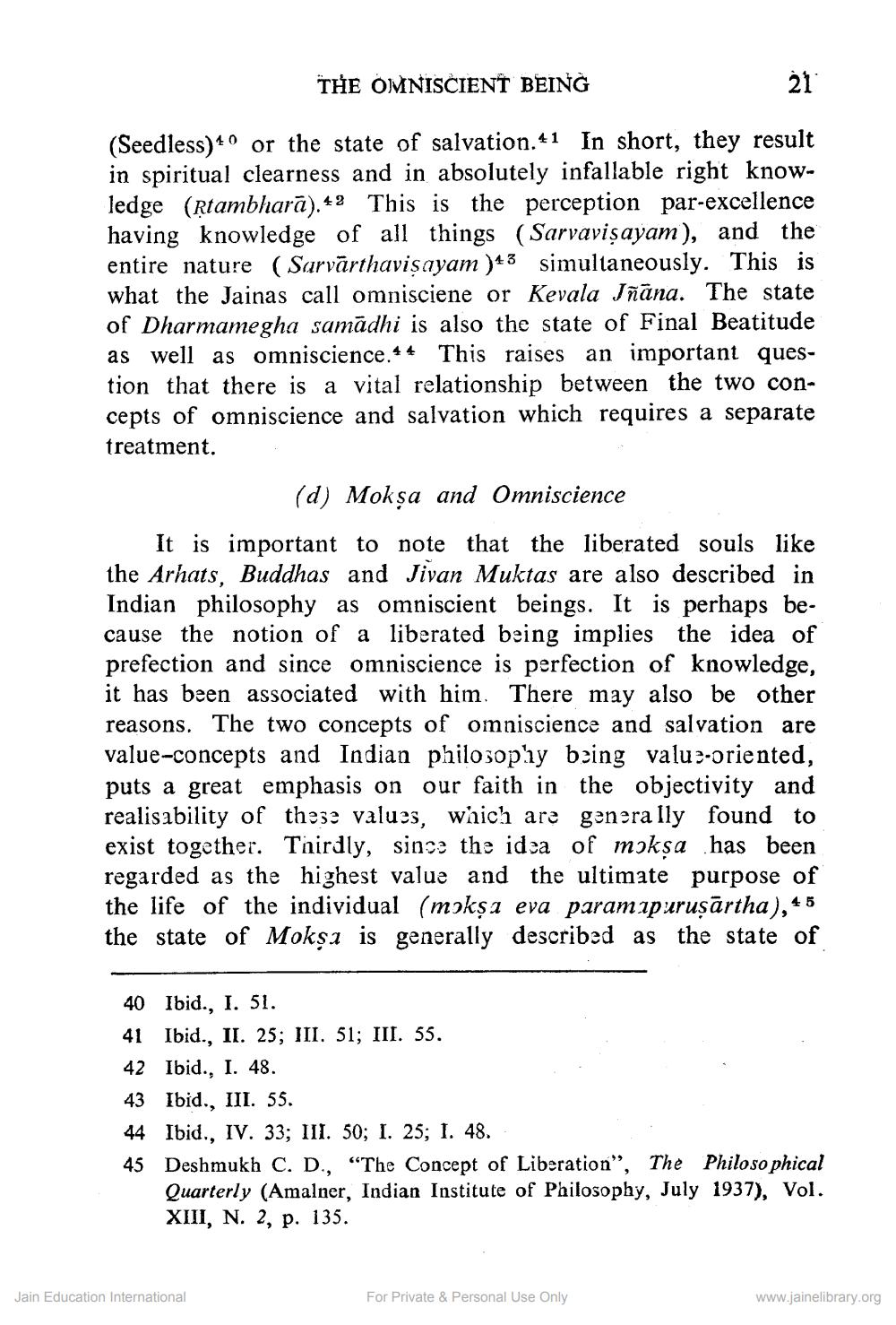________________
THE OMNISCIENT BEING
21
(Seedless) 40 or the state of salvation.41 In short, they result in spiritual clearness and in absolutely infallable right knowledge (Rtambharā).42 This is the perception par-excellence having knowledge of all things (Sarvavisayam), and the entire nature (Survārthavişayam )43 simultaneously. This is what the Jainas call omnisciene or Kevala Jñāna. The state of Dharmamegha samādhi is also the state of Final Beatitude as well as omniscience. 4 4 This raises an important question that there is a vital relationship between the two concepts of omniscience and salvation which requires a separate treatment.
(d) Mokșa and Omniscience It is important to note that the liberated souls like the Arhats, Buddhas and Jivan Muktas are also described in Indian philosophy as omniscient beings. It is perhaps because the notion of a liberated being implies the idea of prefection and since omniscience is perfection of knowledge, it has been associated with him. There may also be other reasons. The two concepts of omniscience and salvation are value-concepts and Indian philosopły being value-oriented, puts a great emphasis on our faith in the objectivity and realisability of these values, which are generally found to exist together. Thirdly, since the idea of mökşa has been regarded as the highest value and the ultimate purpose of the life of the individual (mokșa eva paramzpuruṣārtha), 4 5 the state of Mokşı is generally described as the state of
40 Ibid., I. 51. 41 Ibid., II. 25; III. 51; III. 55. 42 Ibid., I. 48. 43 Ibid., III. 55. 44 Ibid., IV. 33; III. 50; I. 25; I. 48. 45 Deshmukh C. D., “The Concept of Liberation", The Philosophical
Quarterly (Amalner, Indian Institute of Philosophy, July 1937), Vol. XIII, N. 2, p. 135.
Jain Education International
For Private & Personal Use Only
www.jainelibrary.org




